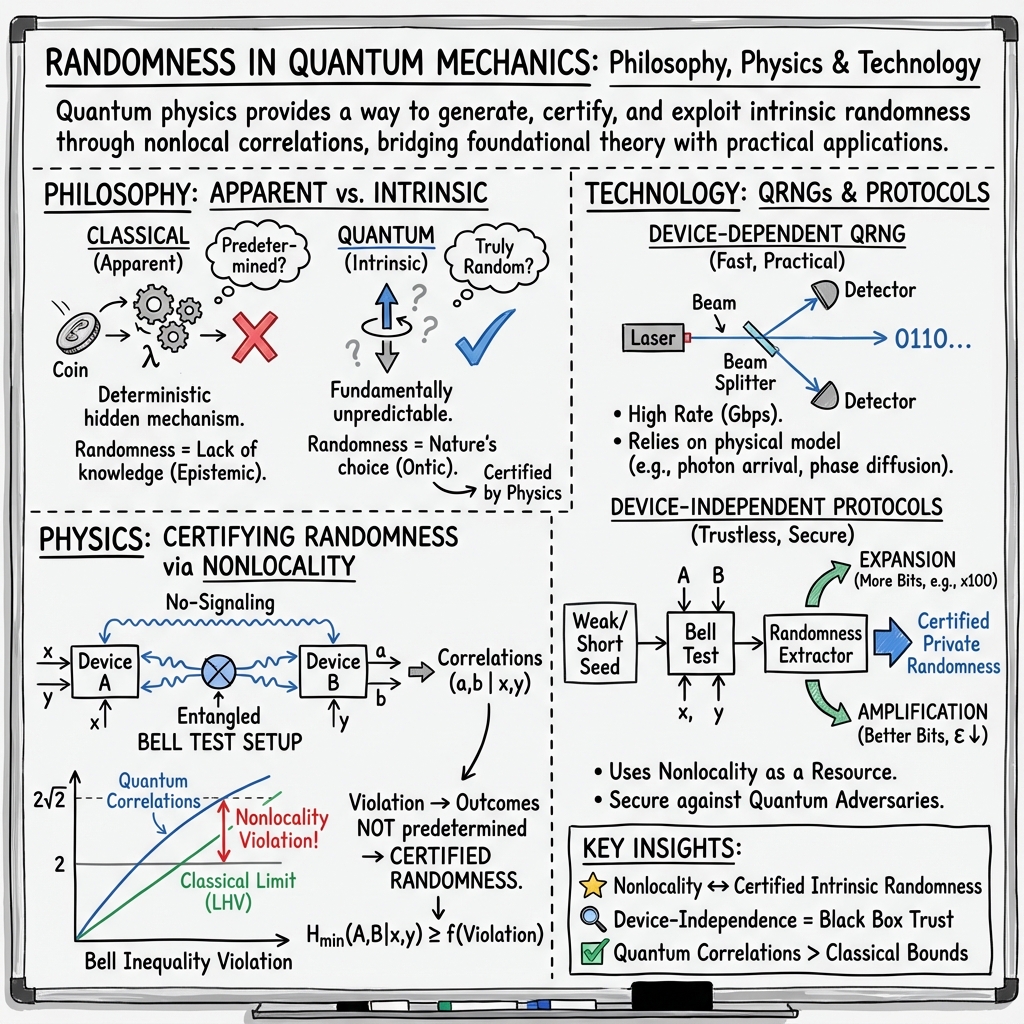Randomness in Quantum Mechanics: Philosophy, Physics and Technology
The paper "Randomness in Quantum Mechanics: Philosophy, Physics and Technology" offers a comprehensive analysis of quantum randomness through multiple lenses: philosophical, physical, and technological. Quantum randomness, unlike classical apparent randomness, is characterized as intrinsic to the quantum theory, suggesting that even with full knowledge of the initial state, only probabilistic predictions of future states are available.
In the philosophical aspect, the paper contrasts apparent randomness, arising from a lack of knowledge about the system's precise state, with intrinsic randomness, which persists even with complete information about the initial conditions. The authors highlight the historical significance of deterministic views such as Laplace’s and argue the potential for genuine indeterminism in classical mechanics when non-uniqueness arises in Newtonian solutions, referencing historical debates by Boussinesq and later considerations of chaos in classical systems.
The exploration of quantum randomness from a physics standpoint involves dissecting the fundamental postulates of quantum mechanics, especially the probabilistic nature of quantum measurements suggested by Born’s rule. The paper discusses the contextuality and nonlocality inherent in quantum systems, introducing the Bell inequalities as a means to differentiate quantum correlations from those described by local hidden-variable models. The violation of these inequalities demonstrates the intrinsic randomness in quantum mechanics.
From a technological perspective, the authors explore quantum random number generation, evaluating the operational advantages it brings in various fields such as cryptography and computing. They review the device-independent protocols, whereby Bell non-locality enables randomness certification, expansion, and amplification without requiring a detailed knowledge of the systems. However, practical implementation remains challenging, driving research toward commercial quantum random number generators that leverage measurable quantum phenomena such as photon emissions and laser phase diffusion.
The paper notes recent advances, such as loophole-free Bell tests using entangled states, which underscore the emerging applicability of quantum technologies. Nevertheless, it emphasizes the ongoing challenge in securely generating and certifying randomness, with device-independent methods often proving to be slower compared to device-dependent approaches.
An interesting query raised by the paper concerns the future of randomness generation technology and whether quantum physics holds unique advantages over classical theories regarding randomness. The paper speculates on the future directions, including further exploration of entanglement, non-locality, and their relationship with randomness generation. Ultimately, the paper reinforces the notion that despite philosophical and theoretical complexities, quantum randomness is becoming increasingly significant in practical applications, with ongoing discourse and research likely to continue reshaping our understanding of randomness in science and technology.


